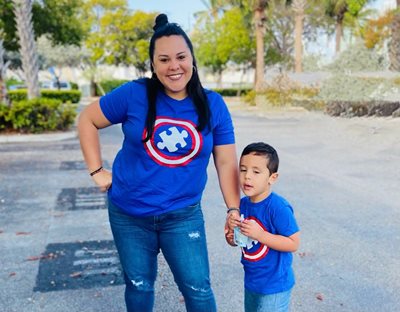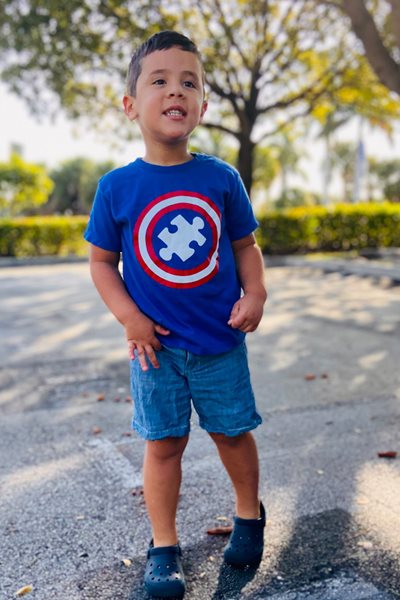I will be the first to admit that no one feared the ‘A’ word more than I did. In 2009, while living in Gainesville, FL, I was a pre-school teacher for the 4-year old classroom. I feared nothing! Once I moved back to Miami, I worked as a swim school instructor for a local and well-known swim school. This is where I learned the ‘A’ word. Autism.
Although the actual diagnosis has been around for years, the word and its little information baffle me. Now, as a mom of a child with autism, I truly understand how little we know of it and how little is shared amongst the neuro-typical community. Odds are you either know someone with autism or know of someone with autism. According to Massachusetts General Hospital, autism now affects one in 68 children and boys are five times more likely to be diagnosed with autism than girls. The numbers alone are alarming. The fact that there is no medical detection let alone a cure, even more so.
As a self-proclaimed advocate for my child on the autism spectrum, I have complied a list of 3 simple (and fun) ways YOU can support families with children with autism.
1. Don't be Afraid to Ask Question
Like I mentioned before, I was scared of the ‘A’ words as a teacher. I can’t imagine the fear or worry it may bring to those who don’t work with children for a living. I’m here to tell you, I wish I asked more questions. The reality is we the parents and families of children with autism are still learning ourselves. I regret not following up with parents and children who I knew prior to having my son. Just because I wish it would have been an easier transition for me now as a special needs mom.
If a parent or family member shares with you their diagnosis, it’s more than likely they’ve already come to terms with the diagnosis. They have probably either been doing research on their own or are asking their child’s doctor questions that you may also have. It’s ok to be included in those questions. You may ask something that we haven’t already asked or thought to ask.
This is also a good feeling for the parent. I personally love when my friends or extended family members ask me questions. It reminds me that I am not alone on this journey and there are people who genuinely want to know about my child and his progress. More often than not, this gives me, the parent, the ability to celebrate my child’s small, but big wins!

2. Kid-Friendly Inclusion Books and Entertainment
It’s so exciting to see that although there is not enough medical research or answers for autism, they are so many child-appropriate books and television shows that accept and encourage the autism community! PBS Kids has been our favorite network that has included so many programs and characters that our children are already fans of! Check these shows out:
- Sesame Street: Julia was introduced to the popular television show in 2015. She’s one of Elmo’s old friends and the newest resident of Sesame Street. Julia appears to be mostly non-verbal and with sensory issues. Which may be the case with lots of children on the Autism Spectrum. Sesame Street does a fantastic job on promoting inclusion even at pre-school age.
- Daniel The Tiger: Teacher Harriet’s nephew, Max was recently debuted as well. Although it isn’t confirmed in the show that Max has autism, it is implied with his characteristics and personality. The episodes that feature Max does a good job at illustrating how neurotypical children can engage with children on the autism spectrum.
Books have also been making its staple within the autism community and I am here for it! We have a few already in our own personal library and we can’t wait to read up on some more. Here are a few of our favorites:
- King’s Day Out: The Car Wash By: Maggie van Galden and Dr. Amy Wheadon
- I Like Myself! By: Karen Beaumont
3. Promote Inclusion in Your Family
For some reason, friends find the need to apologize to me about my son or how one of their children may have treated him. I think I speak for most ASD mommas when I say, please stop apologizing! Do better and promote inclusion in your family. Watch the episodes with your kids! Read the books to them!
Answer their questions and don’t be embarrassed or upset with them for asking them. The more we normalize the conversation comes more awareness. The more awareness we instill, the more acceptance there will be. And once there is acceptance, then comes kindness. Which is the number one goal, we, the ASD community strive for.
